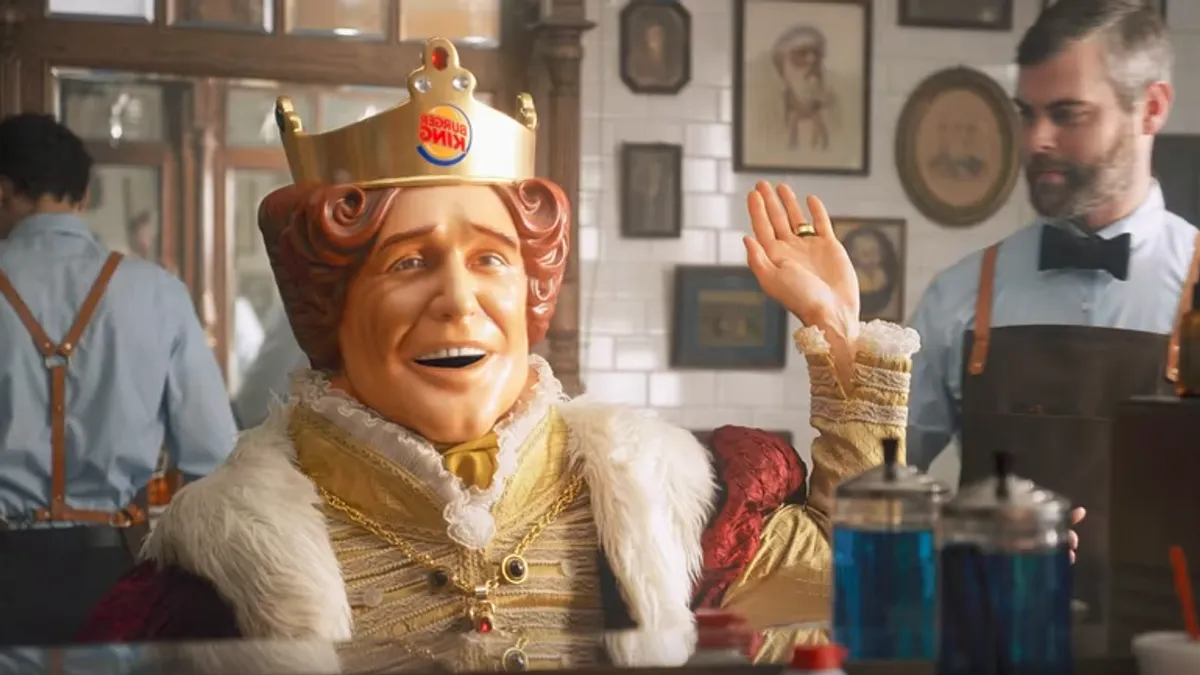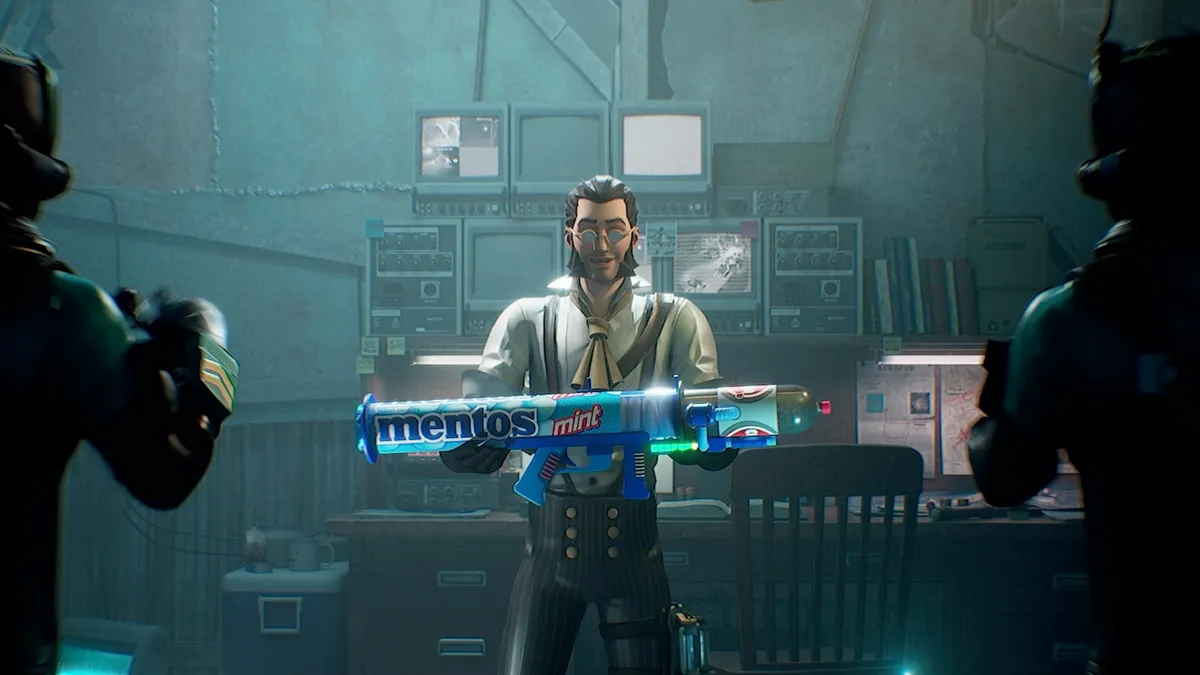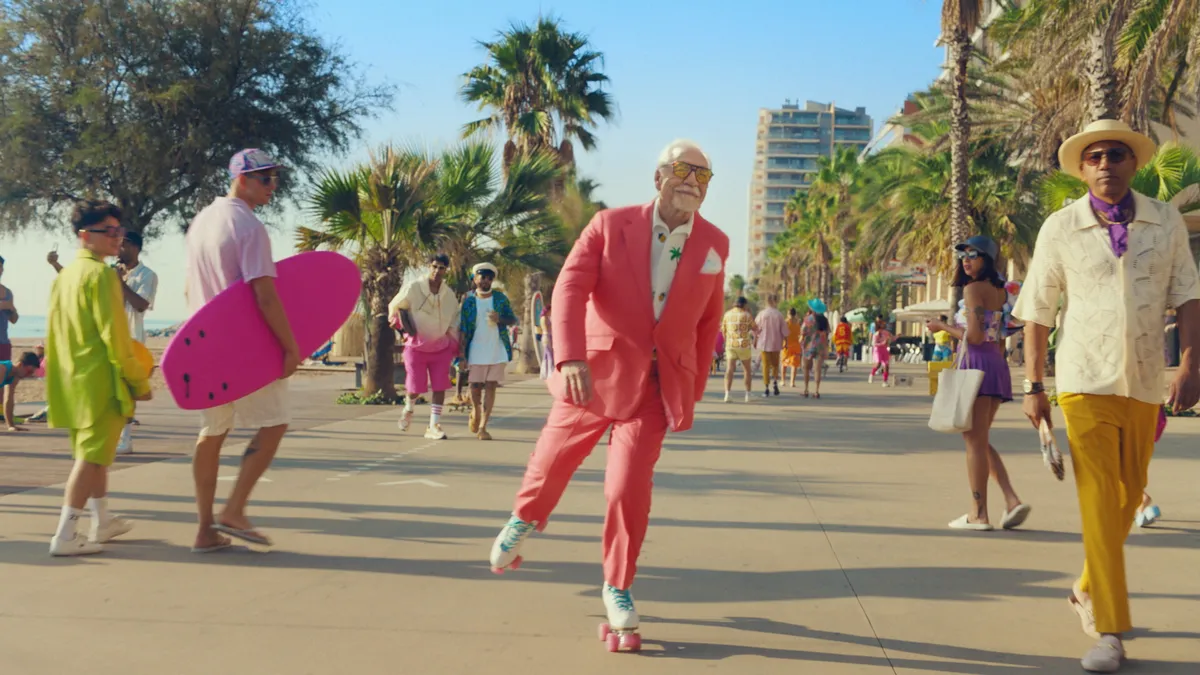Highlights
And the award goes to:
Campaigns like "Scary Clown Night" and "Whopper Neutrality" took home numerous Cannes Lions Awards.
Top campaign impressions:
4 billion for "Whopper Neutrality"
Outlook:
After scoring one of 2017's top campaigns, the fast-food chain continues its "hackvertist" approach to rack up earned media and sales growth.
In 2018, "bravery" is marketers' watch word, with many calling for brands to break from tradition, whether that means aligning with sociopolitical causes or taking chances that could fail. For Burger King, being brave meant continuing to "hactvertize," the approach it has evangelized on the conference circuit.
After a successful 2017, Burger King kept itself in consumer conversations with a series of inventive, culture-hacking campaigns that were timely and true to the brand's left-of-center voice. And this year, it didn't only measure its gains in earned media: In Q2, the chain posted comparable sales growth of 3.8% that was not only higher than the 3.5% growth analysts expected, but helped spur system-wide sales growth to 11% for parent company Restaurant Brands International. However, with same-store growth slowing to 1% in Q3 — missing estimates of a modest 1.5% gain — it's not clear yet what impact these moves will have in the long term.
But in many ways, bravery — and hackvertising — works, and Burger King is leading the Guy Fawkes-wearing parade. Here's how it did it in 2018.
Piggybacking on the conversation
One of the keys to hackvertising is how Burger King and frequent collaborators like David the Agency follow mainstream media and various internet channels, including Reddit, Imgur, influencers and Trendsmap, to figure out which conversations people are already having. Riding on buzz ahead of the holidays and Black Friday this year, the chain launched an e-commerce site that features banner ads from other brands, including Walmart, Macy's and Tommy Hilfiger. When users click on the ad or make a purchase, Burger king snagged a percentage of the sale — but gave back to consumers in the form of vouchers for Whoppers.
Often, the results are also lighthearted and shareable: cutting holes in Whoppers to celebrate National Donut Day, hiding Whoppers in popcorn bags to help moviegoers skirt Peruvian theater rules, trading boarding passes for burgers at Romania's only Burger King — past the security line at the Bucharest International Airport. These campaigns also turned promotions at specific international locations into a global phenomenon (online, at least).
And Burger King didn't do it on its own. The brand teamed with Budweiser to resurrect the legendary "Whassup" campaign, crossing industry lines to get in on '90s nostalgia by revisiting a proto-viral sensation. It also got fans involved in the conversation, boosting its Instagram following by polling users to crowdsource the "InstaWhopper."
On their own, none of these campaigns would likely move the needle significantly. Together, they made Burger King unavoidable.
Pressing hot buttons
For Burger King, hackvertising also means joining the conversation no matter how politically divisive or controversial. That strategy is in line with Sprout Social research that found that 66% of consumers say it's important for brands to take a stance on social and political issues.
Burger King's "Whopper Neutrality" video, which demonstrated the effects of a net neutrality ban through Whopper pricing, tackled a hot-button issue that's only tangentially related to the brand's business model, but one that resonated with the smartphone-savvy consumers it's trying to reach. Because of that, it became the brand's most shared ad ever, notching more than 4 billion impressions and coming up during a congressional hearing.
Don't fear failure
After the success of "Whopper Neutrality," Burger King launched "Chick Fries," a similar issue-based video. This time, the target was the "pink tax," wherein products targeted to women cost more than those for men. While more than eight in 10 Americans support net neutrality, gender politics are a little more fraught. "Chick Fries" didn't match the previous video's massive numbers, and — judging by YouTube comments — viewers either missed the satire or weren't happy with the brand's political stance. Still, nothing ventured, nothing gained.
"Chick Fries" may have tried to put Burger King on the "woke" side of gender politics, but not all of its campaigns were as socially minded. In June, Burger King Russia ran a social media effort that offered free Whoppers for life and 3 million Russian rubles (around $47,000) to women who could prove they were impregnated by players on the country's World Cup team. While the brand quickly ended the campaign and apologized, Burger King earned a bit of negative press at a time when consumers around the globe had World Cup fever.
Looking forward
Burger King has been marketing royalty for two years running thanks to these conversation-capturing campaigns, but they won't be the only hackvertists on the block for long. Innovative campaigns like Swedish beer brand Norrlands Guld's hijacking of a Budweiser Grand Prix winner are sure to be more common as Burger King's playbook becomes standard.
Read More
-
Burger King's 5-step plan for hacking pop culture
By Chantal Tode • June 18, 2018 -
Burger King concocts Halloween sandwich that's 'clinically proven' to create nightmares
By Erica Sweeney • Oct. 18, 2018 -
Burger King parodies AI in campaign created by 'agency of robots'
By Chantal Tode and Erica Sweeney • Sept. 28, 2018
























